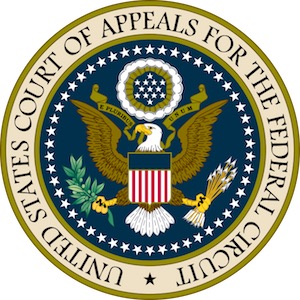“[W]e are aware of no ‘history or tradition’ that supports a fundamental right to have the Board consider whether to institute one’s IPR petition based solely upon co-pending litigation to which you are a party.”
 On March 12, the U.S. Court of Appeals for the Federal Circuit (CAFC) granted Janssen Pharmaceuticals’ motion to dismiss Mylan Laboratories’ appeal and denied Mylan Laboratories’ request for mandamus relief, holding that the court lacked jurisdiction to hear Mylan’s appeal and that Mylan had failed to qualify for mandamus relief.
On March 12, the U.S. Court of Appeals for the Federal Circuit (CAFC) granted Janssen Pharmaceuticals’ motion to dismiss Mylan Laboratories’ appeal and denied Mylan Laboratories’ request for mandamus relief, holding that the court lacked jurisdiction to hear Mylan’s appeal and that Mylan had failed to qualify for mandamus relief.
In 2019, Janssen Pharmaceuticals sued Mylan Laboratories in district court for infringing U.S. Patent No. 9,439,906 (the ‘906 patent). In response, Mylan Laboratories petitioned the Patent Trial and Appeal Board (Board) for inter partes review (IPR) of the ‘906 patent, raising four grounds for the unpatentability of certain claims, all based on 35 U.S.C. §103. In opposition to the institution of the IPR, Janssen Pharmaceuticals argued that the IPR “would be an inefficient use of Board resources,” due to two co-pending district court cases: the suit against Mylan Laboratories and another against Teva Pharmaceuticals, arguing “that both actions would likely reach final judgment before any IPR final written decision.” Citing Apple v. Fintiv IPR2020-00019, the Board utilized “the six-factor standard” for evaluating whether to exercise discretion to deny instituting a petition because of parallel proceedings. The Board agreed with Janssen Pharmaceuticals that it would be a waste of Board resources, noting “the Teva trial date, which was only weeks away.”
Mylan’s Claims and Janssen’s Motion
On appeal, and in support of their request for mandamus relief from the Board’s decision, Mylan Laboratories claimed:
(1) that the Board’s decision to deny instituting the IPR based on the timing of the Teva Pharmaceuticals’ district-court litigation, to which Mylan Laboratories was not a party, undermines their constitutional and other due process rights; and
(2) the Board’s use of the non-statutory “six-factor” standard used to evaluate institution of proceedings was “‘in contrast to congressional intent.’”
In response to these claims, Janssen Pharmaceuticals filed a motion to dismiss for want of jurisdiction, which raised two jurisdictional questions: first, whether the CAFC had jurisdiction over Mylan Laboratories’ direct appeal, and second, whether the CAFC had jurisdiction over Mylan Laboratories’ writ of mandamus.
The Appeal: Jurisdiction
In determining whether the CAFC had jurisdiction to hear Mylan Laboratories’ appeal, the CAFC recognized that the “jurisdiction of federal courts is limited to those cases and controversies delineated in Article III of the Constitution,” and that their general grant of jurisdiction could be found in 28 U.S.C. §1295(a)(4). Quoting 28 U.S.C. §1295(a)(4), the CAFC stated, “[We] shall have exclusive jurisdiction . . . of an appeal from a decision of [Board] with respect to . . . inter partes review.” However, the CAFC noted that 35 U.S.C. §314(d) states “[t]he determination by the director whether to institute an inter partes review under this section shall be final and non-appealable.” Citing Morales v. Trans World Airlines, Inc., to help reconcile these two statutes the court recognized that when interpreting statutory language “the specific governs the general.” 504 U.S. 375, 384 (1992). Using this approach to interpret the two statutes, the CAFC recognized that though they have appellate jurisdiction for IPRs, they do not have jurisdiction to review the Board’s decision not to institute an IPR. This distinction finds support in St. Jude Medical, Cardiology Division, Inc. v. Volcano Corp., where the CAFC held “that we may not hear an appeal from the Director’s denial of a petition for inter partes review.” 749 F.3d 1317 (Fed. Cir. 2014).
Though Mylan Laboratories argued that the Supreme Court had undermined St. Jude by recognizing the “strong `presumption in favor of judicial review,'” the CAFC was not convinced. Citing Cuozzo Speed Technologies, LLC v. Lee, the CAFC reasoned that contrary to Mylan Laboratories’ contention, the Supreme Court showed further support for St. Jude when it ruled “decisions denying institution are ‘committed to agency discretion.’” 136 S. Ct. 2131, 2140 (2016). Finding no support for jurisdiction, the CAFC granted Janssen Pharmaceuticals’ motion to dismiss Mylan Laboratories’ direct appeal.
Writ of Mandamus: Jurisdiction
While there was no way for the CAFC to review the decision denying institution of an IPR on appeal, the CAFC reasoned that “judicial review is available in extraordinary circumstances by petition for mandamus,” by virtue of 28 U.S.C. §1651(a) which according to Tele-comms. Rsch. & Action Ctr. v. F.C.C. “‘empowers a federal court to issue writs of mandamus necessary to protect its prospective jurisdiction.’” 750 F.2d 70, 76 (D.C. Cir. 1984). However, the CAFC recognizes that they must be careful to not interpret “prospective jurisdiction” too broadly because if every event that may lead to an appeal before them were viewed as within the bounds of “prospective jurisdiction” then their “prospective jurisdiction” would be “boundless.” Citing In re Tennant, the CAFC stated that “when a party has ‘at least [taken] the first preliminary step’” which may lead to appellate jurisdiction in the CAFC in the future, “prospective jurisdiction has been triggered.” 359 F.3d 523, 529 (D.C. Cir. 2004).
While Section 314(d) prevents any direct appeal when institution is denied, the statute gives no direction with respect to mandamus jurisdiction. Therefore, the CAFC stated that there is no reason “to think §314(d) also divests us of mandamus jurisdiction.” In fact, the CAFC citing Int’l Union, United Mine Workers of Am. V. U.S. Dept. of Labor, said that mandamus jurisdiction is especially important in cases involving unreasonable delay, or cases such as this, where institution was denied because both situations defeat their prospective jurisdiction. 358 F.3d 40, 43 (D.C. Cir. 2004). Although not explicitly, precedent provides support for this contention because there are instances in which the CAFC has denied mandamus for similar claims in the past, and though the opinions are silent on jurisdiction, to reach the question, the CAFC reasoned they must have had jurisdiction.
Writ of Mandamus: Merits
Despite the fact that the CAFC had jurisdiction to hear Mylan Laboratories’ mandamus petition, Mylan Laboratories still fell short of qualifying for such relief. Mandamus relief is a “‘drastic and extraordinary remedy reserved for exceptional circumstances,’” which requires: (1) a showing by the petitioner that they have a clear and indisputable legal right; (2) that there are no other adequate methods of obtaining relief; and (3) convincing the court that the writ is appropriate under the circumstances. Cheney v. U.S. Dist. Court for D.C., 542 U.S. 368, 380 (2004). In Cuozzo, the Supreme Court explained that the Director is permitted but not required to institute an IPR and that there is no right to such an institution. 136 S. Ct. at 2140. Because there is no right to an IPR, the CAFC found it “difficult to imagine” a mandamus petition challenging an institution of an IPR that “identifies a clear and indisputable right to relief,” and that “[c]ertainly this is not such a petition.”
Finally, the CAFC concluded that the Director’s exercise in discretion to deny the institution of an IPR is not reviewable “except for colorable constitutional claims.” With this in mind, the CAFC ruled that Mylan Laboratories failed to “state a colorable claim for constitutional relief,” because they did not identify a deprivation of live, liberty, or property, so, according to Stone v. F.D.I.C. any procedural due process challenge was foreclosed. 179 F.3d 1368, 1375 (Fed. Cir. 1999). The CAFC has ruled in the past that a judgment must not bind a party “‘who was not a party or privy to and has therefore not had the opportunity to be heard.’” In re Trans Tex. Holdings Corp., 498 F.3d 1290, 1297 (Fed. Cir. 2007). However, Mylan Laboratories will not be bound by the decision in the Teva Pharmaceutical litigation and is therefore “free to litigate the ‘906 patent claims’ validity in its own district court case.”
Likewise, the CAFC stated that Mylan Laboratories had no right for its petition to be considered without reference to the Teva Pharmaceuticals case, reasoning, “we are aware of no ‘history or tradition’ that supports a fundamental right to have the Board consider whether to institute one’s IPR petition based solely upon co-pending litigation to which you are a party.” Therefore, despite having jurisdiction to grant a writ of mandamus, in this instance, the CAFC held that Mylan Laboratories failed to satisfy the requirements for this extraordinary relief.

![[IPWatchdog Logo]](https://ipwatchdog.com/wp-content/themes/IPWatchdog%20-%202023/assets/images/temp/logo-small@2x.png)

![[[Advertisement]]](https://ipwatchdog.com/wp-content/uploads/2023/01/2021-Patent-Practice-on-Demand-1.png)
![[Advertisement]](https://ipwatchdog.com/wp-content/uploads/2024/04/Patent-Litigation-Masters-2024-sidebar-early-bird-ends-Apr-21-last-chance-700x500-1.jpg)

![[Advertisement]](https://ipwatchdog.com/wp-content/uploads/2021/12/WEBINAR-336-x-280-px.png)
![[Advertisement]](https://ipwatchdog.com/wp-content/uploads/2021/12/2021-Patent-Practice-on-Demand-recorded-Feb-2021-336-x-280.jpg)
![[Advertisement]](https://ipwatchdog.com/wp-content/uploads/2021/12/Ad-4-The-Invent-Patent-System™.png)







Join the Discussion
No comments yet.